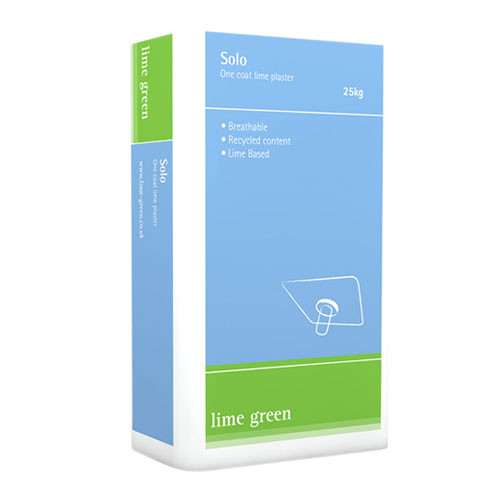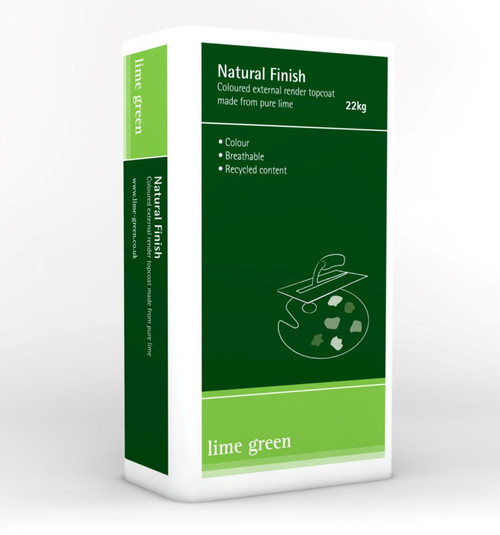-

-

Ready Mixed Coarse Lime Mortar - (CLM28)
£9.01 - £270.42 -

St Astier NHL 5
£19.00 -

St Astier NHL 2
£21.00 -

-

-

-

-

-

-

Ready Mixed Fine Lime Mortar - (CLM35)
£9.37 - £287.75 -

St Astier NHL 3.5
£19.00 -

-

Savolit Plus - Wood Wool Boards
£10.00 - £13.25 -

Hemp Shiv, 180 Litre Bale
£16.80 - £19.80 -

Mature Lime Putty
£12.00 - £467.03
Lime Products
Why use Lime?
Invaluable in the restoration of older buildings, and equally beneficial to new-build projects, it is the ideal choice for many building applications.
It’s flexible - Unlike modern cement based products, lime has a certain amount of flexibility, allowing it to cope with a building’s movements, without cracking. Frost damage in walls is the result of water held in the masonry expanding and contracting as it freezes and then thaws. Mortars and renders made from lime do not set too hard, so In the event of this expansion, it is the lime mortar that will be affected, not the brick or stone. Harder, cement based mortars will not move, the stone or brick has to give, which can lead to ‘blown’ faces and cracked masonry. Subsequently, it is more economical to re-point the lime mortar than it is to remove and replace the damaged masonry.
It’s breathable - Lime is vapour permeable, which allows buildings with solid walls to breathe. Water trapped in the walls is able to escape through evaporation which in turn helps control internal damp and condensation problems. Floors constructed with lime-based material, benefit in the same way. The moisture control also helps protect natural materials such as wood used in the construction from getting damp and rotting.
It’s mould resistant - Due to the High PH of lime products (12-13), they are a natural biocide, which means they do not promote the growth of mould.
It’s kind to the environment - There are several ways that lime usage is better for the environment than modern cement based building products:
- Masonry and Bricks bonded together with lime mortars can be reused in the future as the lime mortar is easy to clean off.
- The manufacture of lime uses less energy than Cement.
- Lime absorbs carbon dioxide as it cures, reclaiming much of the Co2 that is released during manufacture.
- Lime plasters and Lime washes are non-toxic
Lime is the general term used to describe a range of products that use calcium carbonate as a base. Limestone, Chalk and shells are all sources of calcium carbonate.
Quicklime (Calcium Oxide) - To make a usable lime product, the raw calcium carbonate needs to be burned at temperatures between 800 and 1000⁰C. This burning process produces calcium oxide which is also known as quicklime. Quicklime is very unstable and reacts rapidly with water. The chemical reaction produces a lot of heat, reaching temperatures up to 150⁰C. The resulting product is calcium hydroxide which is also known as hydrated lime.
Hydrated Lime (Calcium Hydroxide) - If you want to avoid the somewhat dangerous process of slaking, Hydrated lime (also known as non-Hydraulic lime, slaked lime or fat lime) is available ready-made as a putty. Lime putty can be mixed with water to make limewash or mixed with aggregate to create lime mortars and plasters. Hydrated lime needs exposure to air to carbonate (set), this can take a long time, but it produces the most flexible and breathable finish.
Natural Hydraulic Lime (NHL) - The base material used for quicklime and hydrated lime has a calcium carbonate content of over 95%. Using limestone with higher levels of impurities creates hydraulic lime, a product that sets quicker and harder than hydrated lime. It will also set in the presence of water, offering a product suitable for exposed environments. Hydraulic lime is slightly less breathable than hydrated lime and depending on the amount of impurities in the original lime will set harder.
NHL Lime comes in different grades, numbered according to hardness (the higher the number, the harder the finish). However, as the hardness increases, porosity and flexibility decrease so it is important to choose the correct product for the application. See product description for our NHL usage guide.Want to add a splash of colour to your lime mortars and plasters? A wide range of natural and synthetic pigments are available from Celtic Sustainables.

